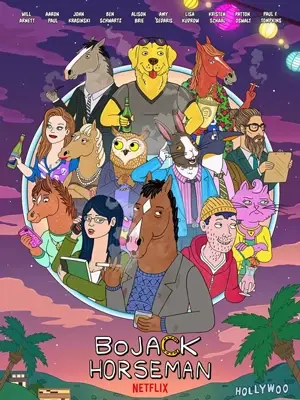The scene where Mr. Peanutbutter asks Diane why she made such a big deal out of the situation, and she said “someone had to say something” and he says “and that someone had to be you…because…why?”. Later in the conversation, he goes on to say he doesn’t understand why she is taking a stand on something she has nothing to do with, and how it is jeopardizing his role on the Hollywoo Stars and Celebs.
When I was younger and first watched the show, I agreed with Mr. Peanutbutter. Why was she getting all riled up about something that had nothing to do with her? I knew she felt passionately about it but like yeah, she had no connection to it whatsoever. But as I get older & find myself more empathetic towards and deeply unsettled by the injustices in this world, I feel obligated to speak up for and educate others about marginalized groups when they have not had the chance to have a voice. This has caused me to be a “Diane” in some situations while talking to my older family members about social issues, who in turn would be the “Mr. Peanutbutter.”
I do also see his side, because his career is important as well and she’s making very publicly disliked statements when she is very openly married to him. Though, I do feel at this point in the show that Diane’s side is ultimately more important and difficult for her yet she still pushes through because she sees the importance, while Mr. Peanutbutter has been able to breeze through life, not really facing any hard realities. In turn, making him unable to understand her situation. I think he could survive just fine if he supported her and faced some backlash, as he would surely bounce back (in the Bojack Horseman cinematic universe where, of course, popular people face little to no consequences.)
Just want some opinions. :)


In general, the show has a ‘nothing really changes’ philosophy, and feels like this type of exposé journalism eventually doesn’t change anything. Like the WTIIRN sex scandal eventually just ruined the female employees’ jobs while that sex bot got a second chance.
Specifically, it shows that it does more harm than good in Diane’s case. As shown in Good Damage, she has faced the injustices of the world and wants to help bring justice to evil people like Hank and WW. However, this incessant need to prove herself is only harming her, causing her to spiral in loathing and depression. It’s only when she gives up can she begin to feel happy again.
I think that’s a bit overly cynical. It’s more “large-scale change is nearly impossible unless you have the wealth for it, so don’t break your back trying to tear it all down, but you can make a positive impact in smaller ways and sometimes that’s good enough.”